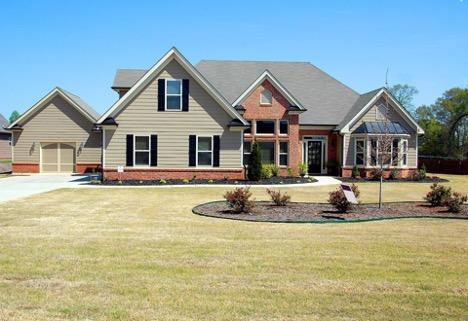What to Know When Buying Your First Home

Buying your first property is a significant moment in your life - getting it right is crucial in ensuring that your money has been well spent, that you end up with a home that fits your needs, and that your choice benefits you in the long run.
With this being said, purchasing a first home is often a process in which mistakes occur and oversights are made. The right approach will take a proactive approach with significant planning, the right professional help and the appropriate financial attitude.
Developing an Initial Plan
First and foremost, successfully purchasing your first home will require you to create a comprehensive plan that outlines everything from budget to home criteria. Developing and sticking to this plan is what will ensure you achieve any goals that you have set out, and that you don’t end up making any regrettable decisions.
The plan should begin by considering what your goals are - these might include anything like sticking within a certain spending limit, buying a home within a certain area, or buying a particular type of property. From this point, you’ll be able to more effectively formulate a plan that allows you to achieve these goals. This might involve adjustments throughout the process, but will mean that you end up with realistic, achievable goals (as well as a pathway to achieving them).
Within the initial planning stages, an area that you may want to focus on will be surrounding the type of home you want to buy. Whether you choose a house, a townhouse, an apartment, or something else entirely, you should think about factors like neighbours, how you’ll want to use outdoor spaces, parking options, and interior layout. Factors such as these will also determine whether or not your choice of home is future proof - with this being said, be sure to consider how many people will be living in the home, and how a close proximity to services and areas within the neighbourhood will come in handy.
Focusing on Condition and Upkeep
While having a well thought out plan is crucial, it will be difficult to accurately include factors of home condition - when you are searching for the perfect first home, each option you come across will differ in condition to varying extents.
As a result, the choices you make regarding property condition will come down to personal opinion. However, it is important that you take these factors seriously, as things like construction and material quality will determine the frequency and severity of future maintenance and upkeep payments. When it comes to home inspections, be sure to pay attention to detail, and test all appliances (e.g. showers, ovens). When it comes to researching the property you are buying, you can find more information here.
If you are set on a home but require more information surrounding its maintenance needs, getting the right professionals involved regarding inspections will give you the confidence you need to make the purchase. These might be inspections for structural quality, pests, or other things, and can be followed up with professional repair services.
Taking the Right Financial Approach
Finally, it is crucial that first home buyers pay attention to their finances. This will likely be the largest purchase you have made to date - understanding what you should be paying, knowing how you are spending your money, and being aware of hidden costs are things that will make all the difference in what you get for your money.
First, ensure that you have anticipated and budgeted for hidden expenses. Unfortunately, purchasing a property is not as straightforward as just paying off a home loan and deposit. The additional costs that you will encounter will range from lenders mortgage insurance and solicitor’s fees, to home inspection reports and moving costs. Ensuring that you have an accurate list of these expenses (ahead of time) will mean that you don’t end up over budget.
Secondly, when you are looking at a home, you want to ensure that it is accurately valued in the first place. This means considering the condition of the home, as well as its size, surroundings, layout, and how it has been built (amongst other things). Even making sure to consider whether or not the interior design is up to date will mean that you can make more accurate pricing decisions.
Finally, one of the most important financial approaches you can take is to stay within your comfort zone - when you are buying a house, costs can quickly add up and it is easy to become uncomfortable with what you are paying. Sticking to your budget, being patient and remaining comfortable will mean that you can make level headed decisions that benefit you in the long run.
More to Read:
Previous Posts:











